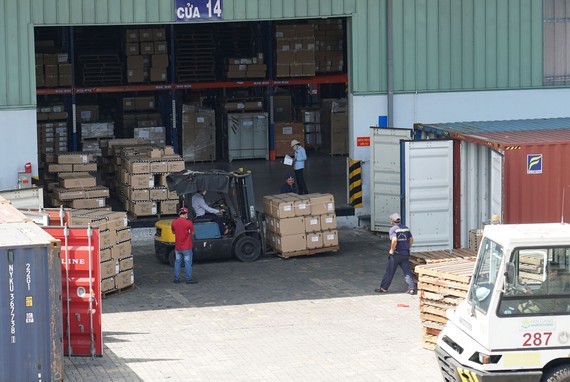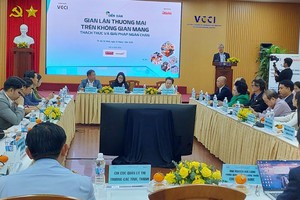
Vice Chairman of Ho Chi Minh City Union of Business Association (HUBA) Nguyen Phuoc Hung worried that after 2 years fighting the Covid-19 pandemic, many enterprises became severely depleted. Even though the economic picture of 2022 is much brighter, current unstable material and fuel prices have caused profit loss to several businesses that signed the contract at the end of last year for goods delivery this year.
Adding to difficulties from possible logistics chain disruption and increasing fuel prices is the challenge to approach capital amounts.
Thanks to the stable political and social status of the country plus the well-controlled pandemic, Vietnam is a preferred choice of many foreign investors. 17 trade agreements have been successfully signed in the first 6 months of 2022, bringing about a direct foreign investment of over US$10 billion in the country, a rise of nearly 9 percent compared to this time last year.
Vice CEO in charge of global supply sources of Techonic Industries (TTI) Nate Easter informed that his company chose to start a new manufacturing plant in Saigon Hi-tech Park in HCMC, worth $650 million. This is the second largest among 12 plants of TTI in the world to earn a revenue of $2.5 billion a year. TTI needs to build a supply chain of domestic support industry products for 80 percent of its needs. This means a demand of 180-200 suppliers in Vietnam in the fields of plastic injection, mold, electricity, and metal.
Similarly, Deputy Director of Export Promotion Center (under the Trade Ministry) Nguyen Thi Thu Thuy shared that in the last 6 months, Vietnam Trade Office in Japan and ASEAN - Japan Center (AJC) are seeking domestic enterprises to supply support industry products for Japanese businesses investing in Vietnam, since the former has identified the latter as one of its 5 strategic markets, especially after the Japanese government spent $2 billion to help businesses to diversify global supply chains as well as encouraging more investment in Vietnam.
The concerned issue at present is how to improve the capability of domestic companies to attract all the foreign capital pouring into the country.
Assoc. Prof. Dr. Tran Dinh Thien from the Government Consultation Team analyzed that domestic businesses at present are in dire need of financial support from the 2-percent interest support package of the government. He added that it is unavoidable to face the inflation rate of around 4 percent at the end of this year due to increasing material and fuel prices globally. The support packages are now the key for economic recovery in Vietnam. The country should be prepared for a higher inflation rate to boost economic growth and ready for a surge of foreign capital flow soon.
Ann Marie Yastishock, Director of the project ‘Creating Trading Profits’ – the U.S. Agency for International Development (USAID) in Vietnam, stated that owing to trading conflicts in other large nations, the relocation of industrial manufacturing plants and trading shift to Vietnam will increase.
However, the current infrastructure and administrative procedures of the country are not ready yet, and congestions might happen. For instance, the capacity of Cat Lai Port is 6.3 million TEUS a year, but it had to serve 8.35 million TEUS last year, with a projection of nearly 20 million TEUS in 2030. It is, therefore, critical to improve basic infrastructure to meet the high demands of goods transport as well as increasing the logistics performance, especially in major ports like Cat Lai, Cai Mep.
In addition, administrative procedures should be simplified, as commented by Chairwoman of Food and Foodstuff Association of HCMC Ly Kim Chi, so that businesses can quickly access financial support packages by the Government. She suggested enterprises should be asked to only prove their working capacity and stable orders, credit history. Those with collateral can be considered a for loan rate rise over this security in order for them to increase their working capital.
More importantly, it is necessary to decrease fuel prices for end-product price drop to increase the competitiveness in the market.
























